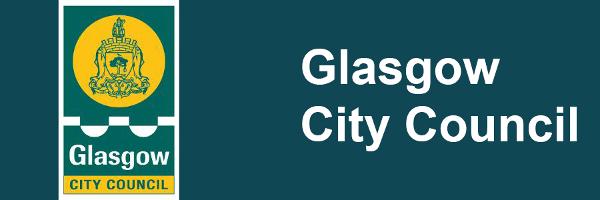Food Waste Service For Flats Takes Another Step Forward
Published: 7 December 2020
Food waste collections for residents of North East Glasgow flats and tenements have resumed again after the service was suspended earlier this year due to the impact of Covid-19..
This follows a successful trial of a new approach to food waste collections in North West Glasgow earlier this year, which sought to reduce contamination of grey bins in backcourts and address risks to staff created by issues with access and stairs.
In line with the pilot in NW Glasgow, bins will be removed from just under 2,500 backcourts in NE Glasgow where there have been significant, persistent issues with contamination of bins with other kinds of waste, such as household black bin bags, or problems with access.
Food waste bins from these back courts are being removed over the course of this week and instead householders will be able to access up to 50 new publicly-sited food waste bins in addition to the 50 already stationed in NE Glasgow. Details of where to find these bins will be included in an updated version of a map on the council website that identifies publicly-sited recycling bins - https://glasgow.gov.uk/RecyclingPoints.
Where bins are being removed from back courts, letters have been sent to affected residents to advise them of the change in arrangements and to highlight the enhanced network of public food waste bins. Locations have been chosen to ensure those people at addresses where contamination of bins has been an issue will only have a short walk to their nearest publicly-sited bin.
Grey bins that remain in backcourts will then be collected every 16 days, which mirrors the implementation of the £6.5m Bin Replacement Programme that is removing small, old-fashioned metal bins from 50,000 properties across the city to allow larger wheelie bins for general waste and recycling to be introduced. The programme also sees the same vehicle, driver and crew servicing the same properties on an on-going basis.
Ensuring food waste goes forward for recycling makes it significantly cheaper to dispose of than as general waste, which happens if a food waste bin is contaminated with other kinds of rubbish. Contamination of a bin will also mean a delay to it being collected, which leads to complaints from residents.
Households are being urged to utilise the recycling bins that are being provided to increase the city's recycling rate and reduce Glasgow's carbon footprint. Reducing the amount of food we throw away could also save the average household up to £460 per year.
Plans are now also being put in place for the food waste service for flats and tenements in South Glasgow with regular collections expected to begin again there in the early part of 2021. It is intended that South Glasgow food waste bins for flats will be emptied over the course of this month in recognition of the fact that some households have continued to use their grey bin.
The food waste service for flats and tenements was suspended in all parts of the city in March this year to ensure priority services such as general waste and recycling collections could continue. Prior to lockdown, around 2000 tonnes of food waste collected from flats was sent for reprocessing each year.
A spokesman for the council said: "Unfortunately, food waste bins in backcourts are frequently spoiled with other kinds of waste, including black bin bags, and that stops any food waste that is collected from being recycled. Access to bin courts that puts staff at risk has proved to be an issue.
"Resolving issues with contaminated food bins also takes up significant time and resources and impacts upon the effectiveness of the wider cleansing service. Contamination of bins further forces the food waste to be processed as general waste, which places a far greater financial burden on the taxpayer than is necessary.
"By providing publicly-sited bins for addresses where there have been significant on-going problems, we are aiming to minimise the issue of contamination and ensure as much food waste can be reprocessed as possible.
"We are hopeful those residents who are committed to recycling continue to support the revised arrangements as they should have greater confidence their efforts will lead to their food waste being recycled."




